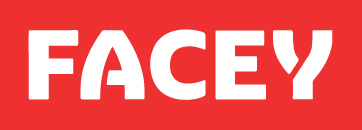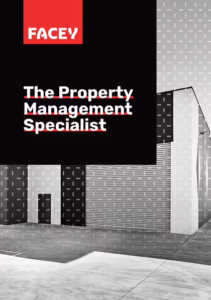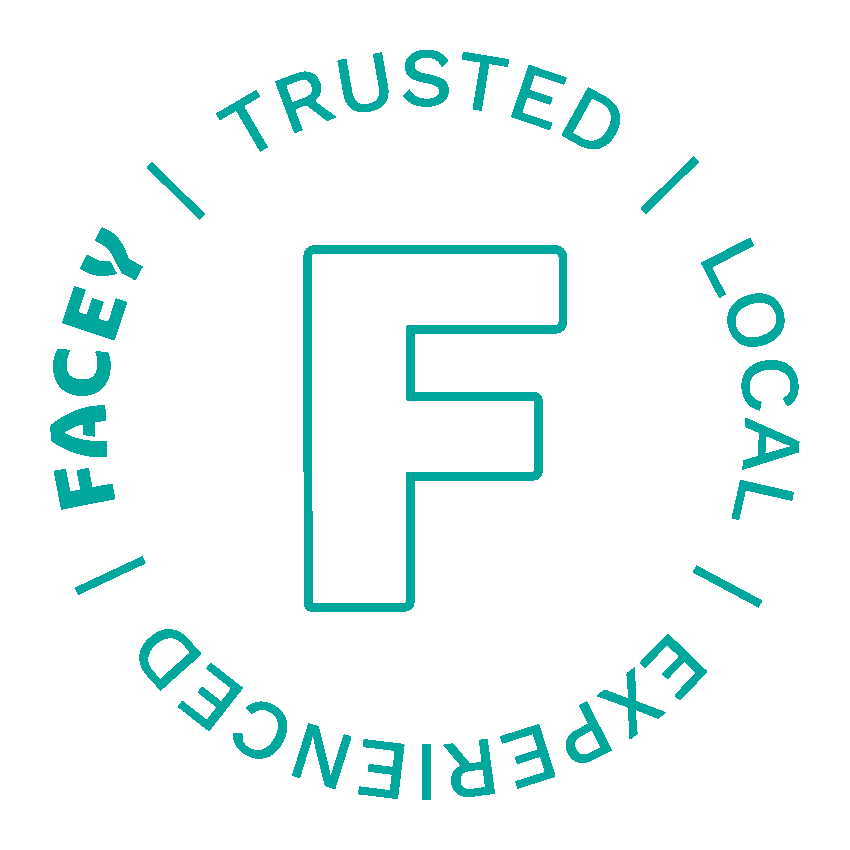FAQ Landlords
Leasing
What do you need to consider when leasing your asset?
- Current leasing activity in the local area
- Implications of planning and any proposed amendments
Why do I need a lease?
A formal lease defines the obligations of both landlord and tenant and ensures that disputes are resolved according to the legal agreement.
Do I need to complete and authority?
The Estate Agents Act requires that any arrangement of our Agency services must be in writing. Facey is a member of REIV so we use the standard REIV Authority forms which have been designed to comply with Estate Agents Act.
Rent
What is the difference between gross and net rentals?
Gross rentals include all tenant obligations including rent and outgoings in one fee.
Net rentals exclude outgoings, which are charged separately when they are due.
How is the rent determined?
Rent is determined by the owner based on agency advice. We will calculate a rental value based on comparable properties.
How are annual rent reviews negotiated?
Normally there is a fixed or CPI annual increase during the lease term. When/if your lease is renewed, rent will be determined according to comparable values in the market.
What are outgoings?
Outgoings are maintenance related expenses. Tenants are generally responsible for reimbursing the owner for outgoings in a commercial lease. Outgoings may be included in a tenant’s rent in a gross lease or charged separately in the case of a net lease.
Outgoings include items such as:
- Council rates, water rates, drainage charges
- Building operating costs
- Insurance costs
- Owners corporation fees if a strata title property
Reporting
What kind of reports do you provide?
- Condition reports conducted on commencement and termination of each tenancy.
- Annual income / expenditure statements provided to assist with your financial reporting.
- Annual inspection reports
- Landlord statements upon payment of rental/or outgoings
- Essential Safety Measure Annual Reports noting your building’s compliance.
Maintenance
What do I do if my property requires maintenance?
Your portfolio manager will provide consultation of maintenance items by providing quotes for rectification works or regular servicing. We have a selection of quality tradespeople on hand to complement your individual requirements. We facilitate quotes to minimise operating costs, while maintaining high standards from contractors.
Tenants
How do we manage tenants who are not paying rent when it’s due?
Communication is vital; we facilitate regular payment runs to Landlords ensuring your rent is paid to you efficiently and follow up with tenants twice weekly in this regard.
Retail Lease
What is the Retail Leases Act?
The Retail Leases Act 2003, was instituted to increase:
a) the certainty and fairness of retail leasing arrangements between landlords and tenants; and
b) the mechanisms available to resolve disputes concerning leases of retail premises
This legislation applies to retail premises used for the sale or hire of goods by retail or the retail provision of services and where the occupancy cost is less than $1 million per year.
Owners Corporation
What is an Owners Corporation fee and what does it include?
An Owners Corporation is a company designated to manage the shared areas of a building and/or adjoining premises ‘the common area’. They charge each tenant a proportionate amount for cleaning, maintenance and utilities in common areas as part of their lease obligations.
Miscellaneous
What is a Disclosure Statement?
A Disclosure Statement is a document that summarises important information and details about the lease so the tenant can clearly understand important elements of the lease. These may include:
- Terms and options
- Rent and outgoing costs
- Specific information for shopping centre leases
- Fit-out requirements
- Relocation and demolition clauses
Who pays land tax?
Under the Retail Leases Act the owner is required to pay land tax on their premises. This is a non-recoverable expense. For properties not covered by the Retail Leases Act, these outgoings are recoverable from the tenant based on a single holding basis or proportionate basis in line with the lease.
Haven't found an answer?
If you haven’t found an answer to your question please get in touch with us directly by emailing chad.kendall@faceyproperty.com.au or calling us on 03 9701 4455.








